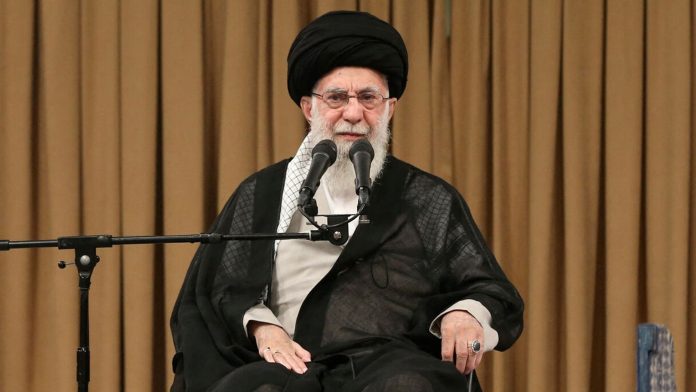DM Monitoring
Tehran: Iranian authorities are preparing to respond to Israel’s October 26 attack on the Islamic Republic’s military sites, an advisor to Iran’s Supreme Leader Ali Khamenei said on Sunday.
“Military officials are planning various strategies to respond to Israel,” Ali Larijani said in an interview with the IRGC-affiliated Tasnim News.
Iran has been threatening to retaliate against Israel over the air strikes, which according to Israeli and US officials, knocked out Iran’s last three Russian-provided S-300 air defense missile systems and left the country “naked”.
Larijani’s remarks came shortly after the body of an Israeli rabbi was found in the United Arab Emirates following his abduction by an allegedly Iran-linked cell, giving rise to suspicions that his assassination may be related to Tehran’s plan to avenge the Israeli attacks.
While Israel has not yet accused Iran of involvement in the murder, Western officials believe Tehran runs intelligence operations in the UAE and keeps tabs on the hundreds of thousands of Iranians living across the country, according to the Associated Press.
In one of the most recent cases in 2020, German-Iranian citizen Jamshid Sharmahd was abducted by Iranian agents from his hotel in Dubai while on a layover. He was later transferred to Iran and sentenced to death. Iran’s Judiciary said late last month that he died before his execution.
Earlier, Israel’s prime minister says it hit part of Iran’s nuclear programme last month, despite pleas from the US not to do so during the strikes it carried out in response to a missile attack.
“It’s not a secret. It was published,” Benjamin Netanyahu told the Israeli parliament. “There is a specific component in their nuclear programme that was hit.”
He gave no details, but last week Axios reported that a “nuclear weapons research facility” making plastic explosives at the Parchin military complex was destroyed. There was no immediate comment from Iran, but it has previously said the Israeli strikes caused limited damage to radar systems and that its nuclear activities are entirely peaceful.
Iran has also insisted that it does not seek nuclear weapons, although evidence collected by the International Atomic Energy Agency (IAEA) suggests that until 2003 it conducted activities relevant to the development of a bomb. The agency says Iran has not yet answered outstanding questions related to its nuclear activity. The IAEA also says Iran has produced enough highly enriched uranium to build several nuclear weapons since the US abandoned a nuclear deal and reinstated crippling sanctions six years ago with Netanyahu’s support.
On 26 October, the Israeli military announced it had conducted “precise strikes on military targets in Iran” in response to the 1 October attack that saw almost 200 ballistic missiles launched towards Israel.
The military said the targets included missile manufacturing facilities, as well as surface-to-air missile arrays and aerial capabilities intended to restrict Israel’s freedom of operation inside Iran.
Iran’s military said the attacks caused “limited and minor damage” to several radar systems and that four Iranian military officers and one civilian were killed. Iran’s Supreme Leader, Ayatollah Ali Khamenei, said the effect of the attacks should not be “magnified or downplayed”.
Satellite images analysed by the BBC showed damage to four structures at Parchin, about 30km (18.5 miles) east of Tehran.
Experts from the Institute for Science and International Security said three of the structures were related to missile production, and that the fourth, known as Taleghan 2, was previously involved in high explosive testing related to the development of nuclear weapons.




